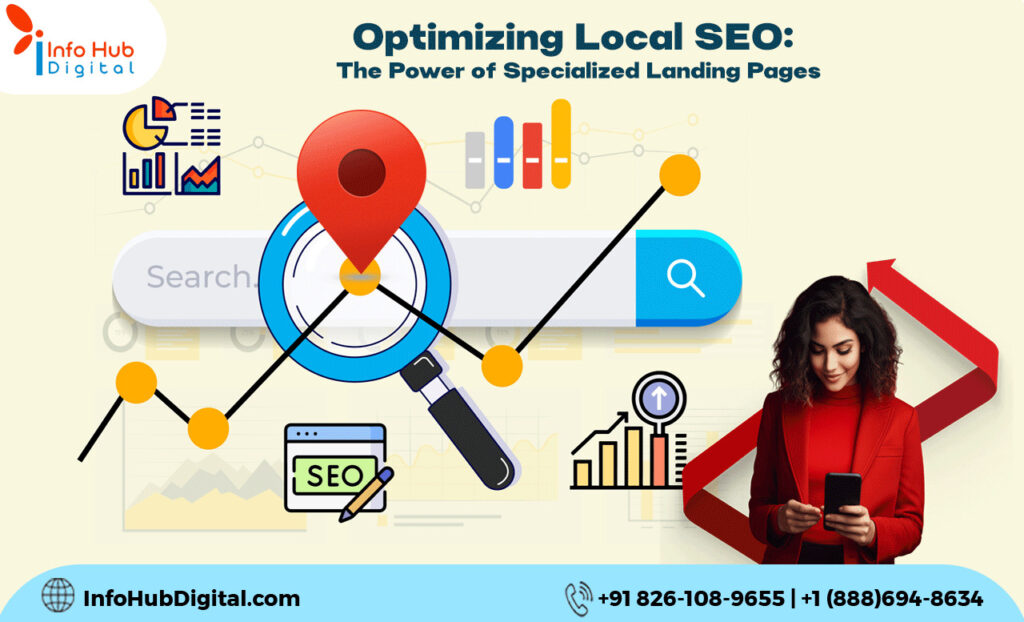It is difficult to stay at pace with the recent SEO criteria because they’re always evolving. However, if you want to see your Google rankings climb from the bottom to the top, you must be prepared. Over time, well-optimized sites gain more visitors, which implies more leads and revenue. Search teams won’t be able to reach your site if you don’t use SEO, and all of your hard graft will be for naught.
In this blog, we will address the question “what does SEO imply” and offer the key SEO ranking variables you’ll need to dominate search results in this tutorial. Before we delve into the specifics of each ranking element, let us just take a short look at how SEO ranking functions.
Table of Contents
What is SEO Ranking?
SEO or search engine optimization essentially means increasing the likelihood of web pages being listed in a search engine. But, let’s be honest, that simply means Google at this point.
The position of your content on the search results is referred to as ranking in SEO (SERPs). A #1 rating indicates that your website is the top result when users search for a specific phrase. It’s great to be in the first three results since your click-through rates soar as you approach closer to #1. Showing on the first page, even if just in the top ten results, is beneficial. That’s only because 95 percent of the total consumers never go past the first page.
How can you rank higher on Google?
Google’s mission states: “Organize the world’s knowledge and make it widely accessible and valuable.” Many people are curious about how Google ranks websites. A big part of that is delivering relevant search results. This is how it works:
- To begin, Google’s search bots (automated software known as “spiders”) scour the internet. We understand if this seems weird. But all this implies is that they go to websites.
- Second, the index and classify properly optimized and crawlable sites in Google’s index.
- Third, when users use Google, it displays what it considers to be the most appropriate results depending on the search words they input (from among the billions of pages in Google’s index).
What are the factors affecting the SEO rank of your website?
Now that you know the specific search engine ranking elements, let’s start with some of the most common factors concerning SEO.
- Content relevance:
It is Google’s role to assist users in finding what they are looking for. That’s all they’re doing when it comes right down to it. As a result, having material or authoring articles that respond to extremely particular search phrases, something that someone is truly seeking, is critical. But remember you can’t just write one fishing tip and expect it to be popular. It has to be a result of someone’s extremely focused search.
- Mobile-friendly sites:
Google’s mobile-first indexing is now live, which means it will prioritize mobile-optimized websites above desktop-optimized sites in its search results. In terms of SEO, if your site isn’t mobile-friendly, you risk being left out in the cold.
- Page Speed:
As more users access smartphones, site speed is becoming an increasingly crucial ranking criterion for Google, and this one is particularly difficult. Right now, start a new browser and go to Google Page Speed Insights to examine 1-2 pages on your website. You’re doing incredibly well if your mobile page load speed is more than 60. Most WordPress blogs will be able to get there.
- User experience:
Leveraging various SEO strategies can help your website make it to the top of pertinent SERPs, but all of your efforts will be for naught if your visitors have a poor browsing experience. As a result, website owners should place high importance on providing the greatest possible viewing experience.
- Content Quality:
Keywords are used heavily in Google’s search algorithm. When people are seeking information, they adopt these words and phrases. They’re furthermore the words or phrases that characterize the subjects of your website. Ideally, they’ll be compatible. Duplicate content is a bad SEO ranking issue to be mindful of. Fresh, unique material is always the best for SEO.
- Engaging Backlinks:
Page relevancy compares the content of a website page to the back-linked web pages on that page in terms of thematic relevance. If you’re collaborating with some other website to create a connection to yours, the contents of that site must be thematically relevant. Beyond just assessing if a keyword phrase appears in the material, thematic relevance is described as an assessment of just how significant a piece of information is to that keyword phrase. It’s deemed thematically related and an engaging backlink if the website content contains concepts of precision phrases, words, and concepts.
- Target Authority:
If your domain has been punished in the past by users who used very spammy approaches, or if it is brand new, Google will not be able to ascribe much credibility and loyalty to it soon. To solve this problem, you’ll have to put in some effort. However, as your domain grows and gets some history behind it with more and more high-quality articles, your domain will become more valuable. In such a case, Google will be able to trust your domain, allowing you to rank much higher and much faster even if you’re starting from scratch.
In a nutshell, Google uses a variety of algorithms to determine which information is displayed and in what order. However, we’ll get to all of that eventually. However, once your page appears in the SERP, you must rely on the title tag and meta-descriptions to entice visitors to click on your hyperlink and visit your website. For more information, contact Info Hub Digital experts.
Also Read : How to Rank Quickly for a WordPress Website?







